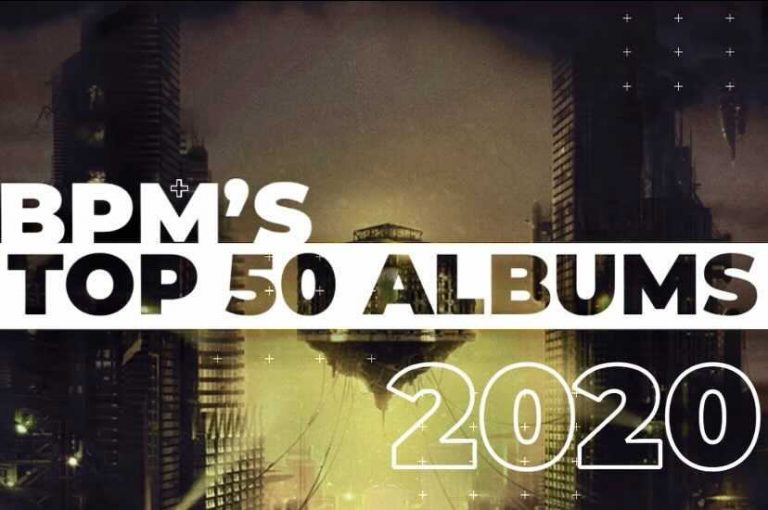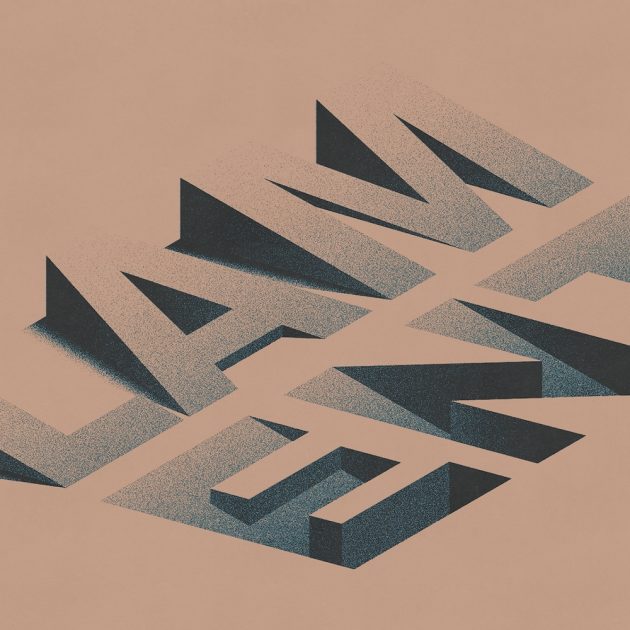
40.
Touché Amoré – Lament
[Epitaph]
Lament is jam-packed with the kind of crushing honesty and emotional self-indulgence we’ve come to expect from Touché Amoré, and, like a sugar-coated pill, it’s wrapped in their most accessible package yet. Jeremy Bolm’s trademark scratchy vocals are as catchy as they’ve ever been on songs like “Reminders”, and there’s plenty of ‘soon to be a tattoo’ lyrics scattered throughout. Take your pick of tracks and you’ll find something to love.
Ross Robinson’s production has brought a crispness to every note, and while it’s not as heavy as many expected, there’s still a sense of brutality to the beats in tracks like “Savoring”. These moments punctuate rather than overpower, and give Lament more balance than the band have had before. At this point in their ever-upward trajectory it suits them; they’re owning their status, their maturity and dealing with the difficulties this position has brought them. Bolm sings, “I didn’t ask to lead this party,” on “I’ll Be Your Host”, but he’s continuing to do a damn good job of it, and with records like this there’s no sign that Touché Amoré will be disappearing any time soon.
In a year riddled with difficulty and tragedy no matter where you are in the world or in your life, this is a cathartic listen; it’s full of love, loneliness, loss and even a tinge of comedy. If this record doesn’t make your 2020 more palatable, then I don’t know what will. – Lauren Mullineaux
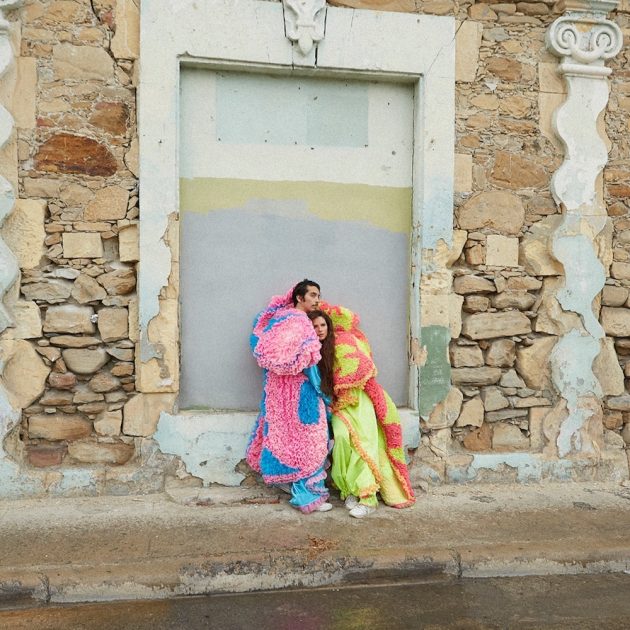
39.
Buscabulla – Regresa
[Domino]
Buscabulla’s story is one of push and pull, advance and retreat. Raquel Berrios and Luis Alfredo Del Valle left Puerto Rico separately and journeyed, as so many do, to the cultural hub of New York City in search of greater artistic opportunities. They met in the thriving expat community and formed their band soon after. Success followed: the pair won the lucrative Guitar Center Contest in 2013, winning the chance to work with Blood Orange’s Dev Hynes; appearances at prestige festivals like Coachella came next.
When Hurricane Maria and Irma then devastated their homeland in 2017, they returned to a place where most others were fleeing from. This is, essentially, the Buscabulla way. They continuously upend expectations, including on their album Regresa. They manage to pay homage to the classic sounds of Latin music while expressing themselves through psychedelic rock and experimental pop. They’re honoured to have an icon such as Nydia Caro appear on a track (“Nydia”), while the record was given additional production by Patrick Wimberly (Chairlift, Solange).
Recorded entirely at their home studio, Regresa signals their eventual acceptance of being back in Puerto Rico and it embraces the place’s imperfections. It’s why the album has its name: Regresa translates as Return and is an encapsulation of this transitional time in their lives. You can hear the ferocious mix of confused complex emotions throughout. It sees them sway from the powerful ode to resistance “Vamono” to the sombre surrender of “No Sabemos”. It may be an introspective record but the relentless buoyancy of the production is both a sign of hopeful perseverance and a call to dance through even the most significant of trouble.
After showing promise for so long, their gorgeously produced and fully-realised debut was worth the wait. As they become more entrenched in the vibrant but fragile surroundings of their homeland, and New York City grows further into the past, it will be fascinating to see how their music develops and expresses itself on a follow-up album. – Conor Lochrie
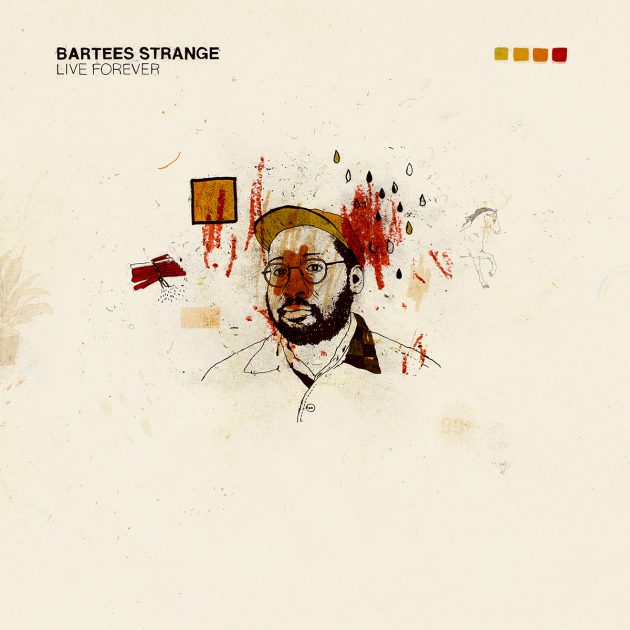
38.
Bartees Strange – Live Forever
[Memory Music]
Landing somewhere at the crossroads between rock, jazz, hip-hop, and oddly enough emo, the debut album from Oklahoma-born, D.C.-based everyman Bartees Cox Jr. aka Bartees Strange is nothing short of incredible. Dabbling in the hyper lyricism of TV on the Radio, but storming the barn with stadium shaking rhythms, Live Forever is all at once a love letter to Cox’s home state (“Mustang”), the ironic burden of acceptance (“Boomer”), and freedom restrictions (“Mossblerd”) all wrapped in The National’s penchant for melodramatic structures. Throughout the adventure Cox isn’t randomizing his influences, he’s meticulously tearing them to pieces and situating them in nomadic places. He can start a song like a Phil Collins soft rocker but end it as a Foo Fighters-level banger, as he does on “Stone Meadows”.
Nothing about Live Forever is particularly trail-blazing, but what it manages to accomplish over its brisk yet bountiful 35 minutes is a testament to Cox’s love of music and his influences. He knows full well that as a black man burning through the barriers of a traditionally white-dominated genre, he’s privy to harsher criticisms than others. But this version of hybridization is richly rewarding no matter what color you are or what genre you prefer, as Cox melds them all in a fine blend. – Tim Sentz
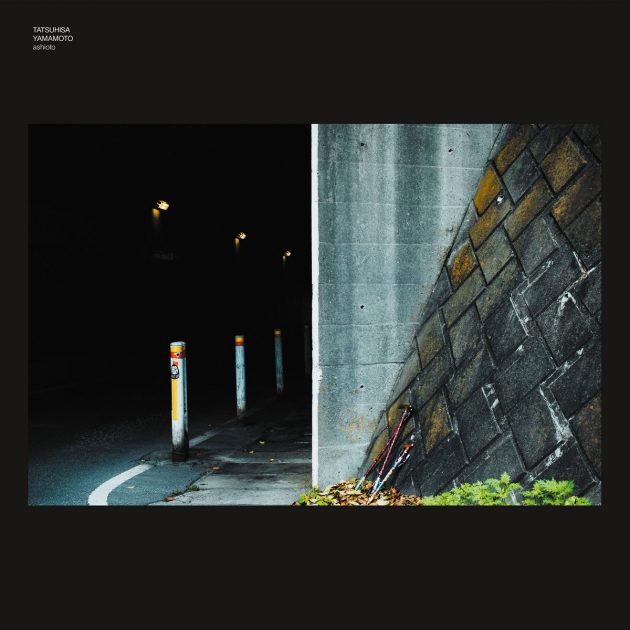
37.
Tatsuhisa Yamamoto – Ashioto
[Black Truffle]
Ashioto is a dream – and I mean that in multiple ways. Not only is the first internationally-issued LP from the Japanese drummer, percussionist, and composer Tatsuhisa Yamamoto an undeniable delight for your ears, it’s also the sound of your brain conjuring up entire landscapes while you sleep. Across its two parts, it takes you down cavernous halls, murky backstreets, endlessly spiralling staircases, and abandoned rail yards. Curiously, the album’s first part sounds like alarm waking you up, Yamamoto clattering away on shimmering, chiming percussion like torrential rain on a full set of cymbals. From there the space opens up; piano chords lure you into the dreamscape further while brass and itchy drums add colour to the world around you.
Come the second half, Ashioto intensifies, darkens, and almost becomes nightmarish. Synths and brass come to an overflowing simmer that sounds like a thousand horses galloping alongside high speed trains hurtling by. The way Yamamoto envelops you is masterful; you don’t even fully realise how deep and intense the Lynchian soundworld is until the view starts clearing in the final minute or so. No doubt the mastering from Jim O’Rourke plays a part, but it’s Yamamoto’s composing skills that are the real talent here, fusing together layers of rhythm, texture, and atmosphere while morphing the sense of scale with the sleight of hand. It’s hard to fathom how any awake mind could conjure this, but with Ashioto, Yamamoto lets you start living your dreams. – Ray Finlayson

36.
Waxahatchee – Saint Cloud
[Merge]
Oh her fifth record to date, Katie Crutchfield (aka Waxahatchee) is at her best. Writing songs after becoming sober, her vision on the excellent Saint Cloud seems clear and acute. It’s there in writing on standout single “Fire”: “I’m wiser and slow and attuned,” she muses as she takes in the bright, flame-like skyline. Opener “Oxbow” might splash into a wired, watery world of jittery backtracked effects, but Crutchfield sounds clear and calm even amidst all this. As the album progresses, her pen becomes exact and her lyrics offer plenty to mull over. “Lilacs”, with its glorious chorus of hooks aplenty, has her retorting, “If I’m a broken record / Write it in the dust, babe.”
On “Arkadelphia” she paints one of the many detailed and considered scenes of the American landscape: “Past fireworks at the old trailer park / And folding chairs, American flags / Selling tomatoes at five bucks a bag.” Come the title track at the end of the album, Crutchfield is still singing out to the open landscapes – from New York to Florida this time: “When you get back home to St. Cloud / Watch the new world project / A rousing image, scorched earth swinging / Supernatural and complex,” she urges over the most gentle, sweet accompaniment you can imagine. The ride Crutchfield has taken you on over Saint Cloud might be winding down come the final track, but she offers finally: “When I go / Look back at me, embers aglow.” It’s impossible not to; you have to play the album again to enjoy the heat of the fire burning within. – Ray Finlayson
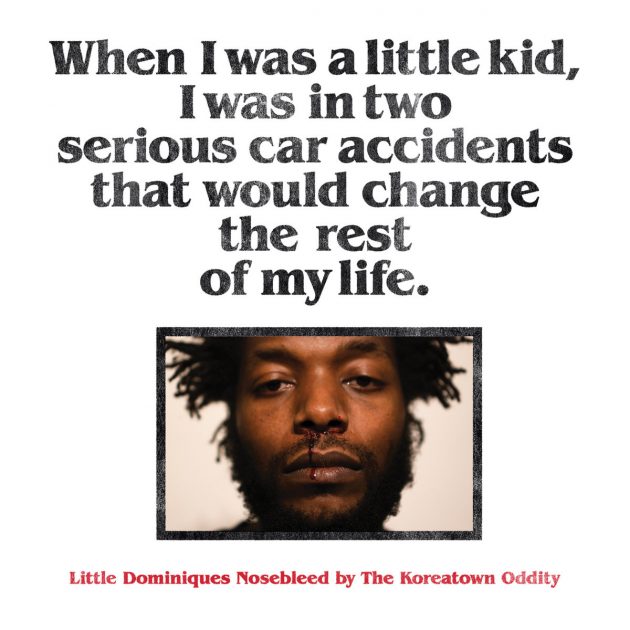
35.
The Koreatown Oddity – Little Dominiques Nosebleed
[Stones Throw]
Some albums really need to be listened to in full to appreciate fully, and The Koreatown Oddity‘s latest release Little Dominiques Nosebleed is precisely one of those records. Sure, songs like “Little Dominiques Nosebleed Pt. 1”, “Weed in LA”, and “Attention Challenge” may provide some insight into Dominique Purdy’s uniquely intoxicating mix of wry humor, socio-political commentary, and autobiographical transparency. But by experiencing the LA rapper’s fourth LP in full, listeners are presented with a world and life experience entirely unique to Purdy – one that is fully tragic, thoroughly hilarious, and deeply personal. A project that presents a humorist firing on all cylinders, housed within a sonic infrastructure composed of cleverly-placed samples and hazy lo-fi beats, Purdy’s fingerprints, both as a lyricist and producer, are smudged all over this record. With “Looking back to understand where I’m at” as his very first words spoken on the record, Purdy cuts to the chase on why he wrote this album. Soon, the ‘why’ turns into ‘how’ as we witness the amusing rapper wield his childhood trauma and his hometown as the foundation to his acrobatic raps, proving gradually over the record’s duration that few projects belong to an artist as truly as Little Dominiques Nosebleed. – Kyle Kohner
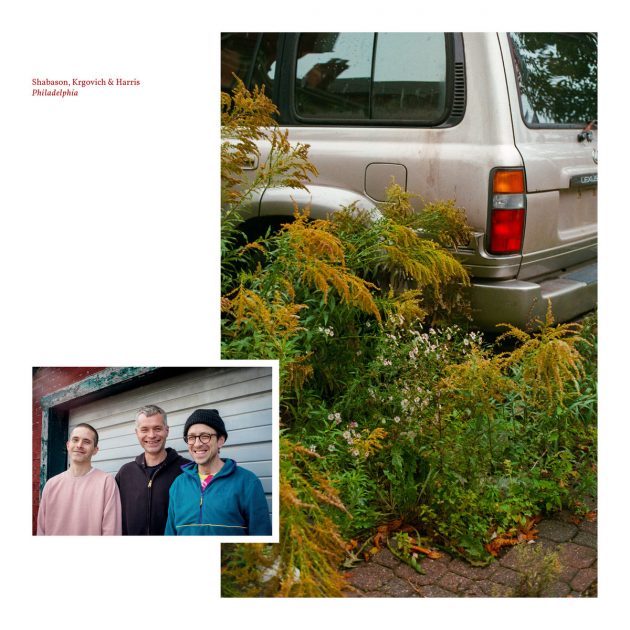
34.
Shabason, Krgovich & Harris – Philadelphia
[Idée Fixe]
Indulge me: do you remember waking up on long road trips as a kid and seeing the car radio blink 3am, or some other impossibly late hour, before adolescence came and squashed the novelty and magic of it? It’s a small cadre of bands who can recreate this mood (80s sophisti-pop is good at it: The Blue Nile, Sade, etc.), and I now happily include Shabason, Krgovich & Harris. Every piece on Philadelphia is built for peacefulness: piano, slide guitar, soft sax solos, 80s new age keyboards, hushed vocals. The lyrics won’t intrude if you’re not listening for them, but they reinforce the peaceful tone: cactus gardens, showers, a mantra of “wrap your loving arms around it.”
Boldly, the album is named after its lone cover, Neil Young’s “Philadelphia” from the eponymous 1993 movie (also memorably covered by Peter Gabriel in 2010). Here, the trio handle one of Young’s sweetest melodies with the care it deserves for its tender power to come through. For such a soft album, it pulls off an impressive feat by dedicating itself to the thoughts and moments too fragile and internal to usually survive the creation process. A healing listen. – Josh Sand
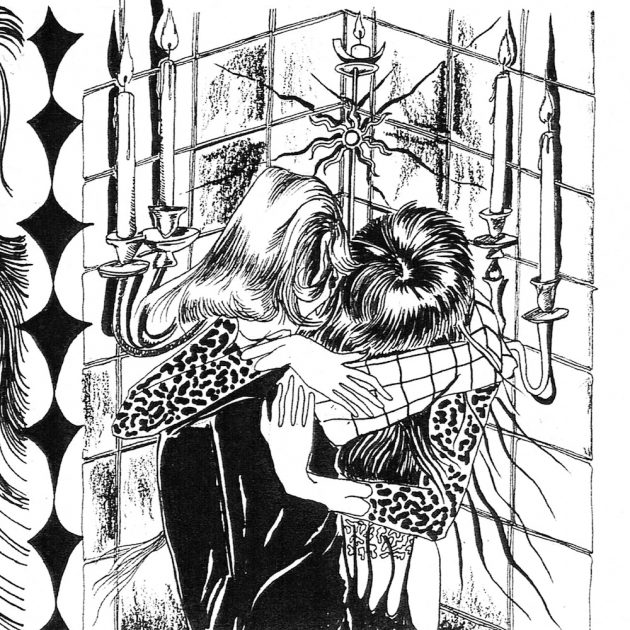
33.
Cindy Lee – What’s Tonight To Eternity
[W.25th / Superior Viaduct]
It’s 2020 and we’re finally talking about Cindy Lee. The cult following surrounding former Women leader Pat Flegel’s main project is small but substantial enough that their cassettes fly off the gawdy Geocities page like hotcakes. Whereas back in 2015, when Acts of Tenderness dropped at the tail end of the year, many have had time to fully allow What’s Tonight to Eternity to unravel itself over them since its Valentine’s Day release. The distant echoes of pain and confusion run through lo-fi production make the eerie croons of Flegel the stuff of David Lynchian nightmares. From the shimmers on “I Want You to Suffer” to the almost ballad-esque underbelly of “Heavy Metal” – paired with Flegel’s signature subdued doo-wop vocals – all add this cinematic feel to their craft.
Flegel’s journey from Women to Cindy Lee has been tumultuous, but it’s produced some of their most engaging and challenging work. Eternity takes everything they’ve created over the years and refines it to the point of minimalistic experimental pop. It strains and it creaks, but in the end it’s triumphant. Plucking recording samples from homemade tapes and using the most rudimentary mechanics to produce such a richly diverse record is one of Flegel’s calling cards. From Public Strain to Acts to now, Flegel’s always done what they want and how they want, and they’ll get no complaints from us. – Tim Sentz
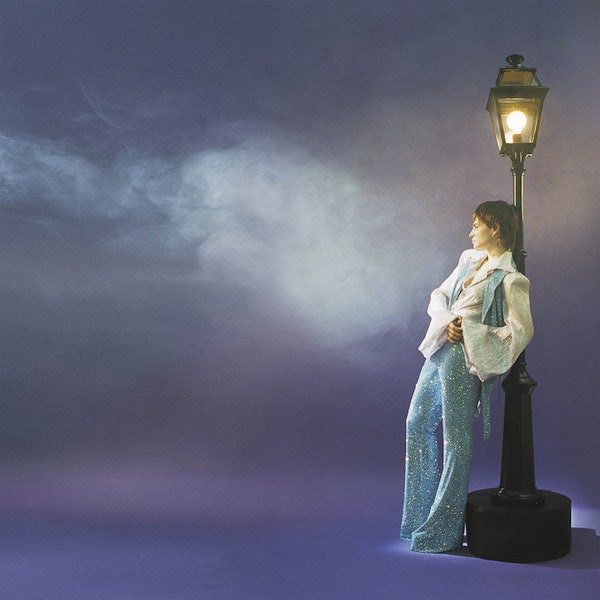
32.
Christine and the Queens – La vita nuova
[Because Music]
We don’t deserve Héloïse Letissier. The French singer-songwriter has, in short shrift, established herself as a bona fide icon, from her inimitable style to her imaginative approach to movement and performance, through to the flawless run of her short but remarkable discography. With 2018’s Chris seemingly becoming more and more unimpeachable as a high watermark for 21st century pop, it was beginning to feel like Christine and the Queens couldn’t possibly match it, let alone top it.
We needn’t have doubted her. La vita nuova is a perfectly-cut, glistening diamond of an EP that’s so accomplished we couldn’t in good conscience leave it off our albums of the year list. From its instant classic opener, “People, I’ve been sad” (2020’s least anthemic anthem), to the inspired groove of “Je desperais dans tes bras”, through to the Caroline Polachek-featuring title track, La vita nuova is the very definition of all killer, no filler. Accompanied by a theatrical fever dream of a short film, replete with rooftop dance solos and vampiric duets, La vita nuova showcases an artist following her muse to new heights, creating a sui generis world that no one else could hope to replicate, neither in its deceptively simple formal construction nor its emotional heft. By sharing her inner life with us, Letissier has given us the kind of gift that makes the day-to-day feel new again. – Andy Johnston
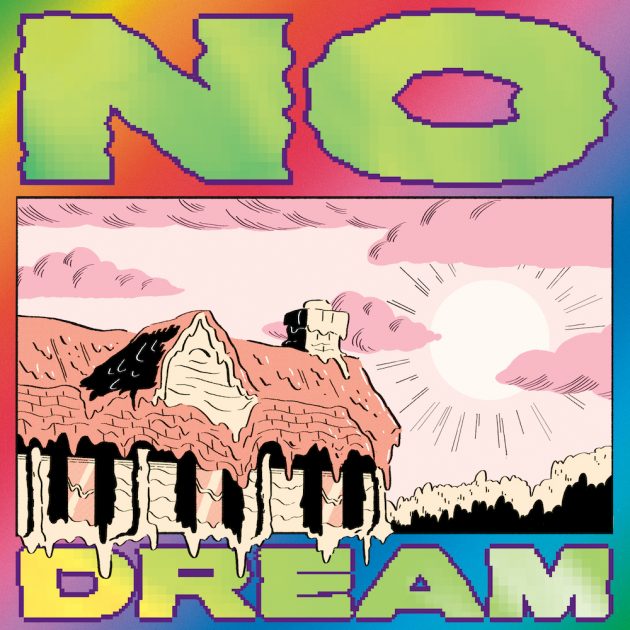
31.
Jeff Rosenstock – NO DREAM
[Polyvinyl]
On the raucous, unrelenting, and hilarious NO DREAM, Jeff Rosenstock says what everyone else is thinking. Always prophetic, the punk rocker has managed to capture the American hell of 2020 like few others. “There’s no faking bliss,” he sings on “Nikes (Alt)”, a scathing anthem on consumerism’s continual boom while essential workers are left out to dry. “N O D R E A M” has Rosenstock howling off today’s ills — Trump’s inhumane immigration policies, political corruption, capitalism — with such primal disdain it sounds like he’s about to buckle from the weight of it all.
Yet Rosenstock puts himself under the same scrutiny as NO DREAM hones in on his personal experience. He laments his pride in an imaginary beer-can pyramid he’d refuse to knock down on “Leave It In The Sun”. He feels guilty about escaping for a day on “Monday at the Beach”, and questions his life on the road on “Ohio Tpke”. By doing so, Rosenstock urges listeners to do the same, to look beyond themselves. “When you wake, does it feel like you have a purpose?” he asks on opener “NO TIME”. Are we happy with the world, or ourselves? Can’t we do better? – Carlo Thomas

